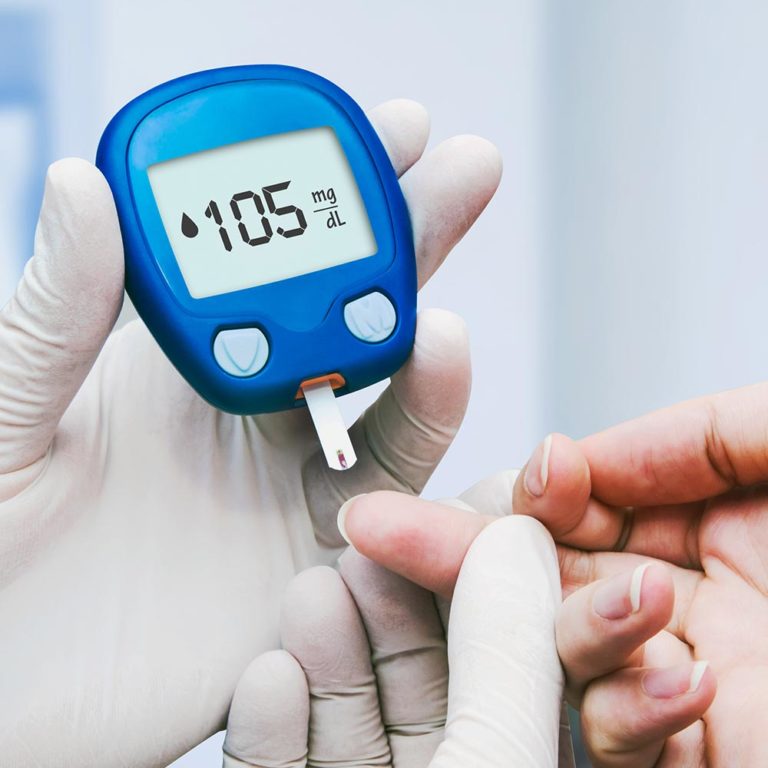Diabetes is a disease which occurs when the blood sugar levels in your body are too high. The pancreas, an organ in your body, produces a hormone called insulin. High blood sugars may be caused by poor insulin production by the pancreas or poor response of the body to insulin. Since many tissues and processes in your body depend on metabolizing blood sugar, diabetes may affect almost every system in your body.
According to the U.S. Centers for Disease Control and Prevention, approximately 11% of Americans have diabetes. Typically, people already know that diabetes increases your risk of heart disease and stroke; but most people don’t know that diabetes can also affect your vision. Therefore, regular comprehensive eye exams are needed to detect these issues early on to keep your eyes healthy. There are several eye diseases that occur because of diabetes. Read on to find out more about these diseases and how they may affect your vision.
Diabetic retinopathy
Diabetic retinopathy is the leading cause of blindness in diabetics. The simplest way to explain diabetic retinopathy is that small blood vessels in the back part of your eye called the retina are damaged and can leak blood or fluid. Some people may not experience any symptoms in the early stages of diabetic eye disease. Early symptoms of diabetic retinopathy include having floaters, blurry vision, or distorted vision. If blurred vision or other symptoms don’t clear up with improved blood sugar control, medications and/or other procedures may be needed to treat the retina. To catch the condition as early as possible, it’s important to get an annual comprehensive vision care exam along with monitoring and managing your blood sugar levels.
High blood sugar levels can temporarily cause blurred vision. It can happen right after a high carbohydrate meal. Regardless, the treatment for correcting temporary blurry vision due to elevated blood sugars is to follow your doctor’s recommendations to control your diabetes. It may take a few months for the blurriness to resolve itself, so patience and sticking to eating properly to manage blood sugar levels are a must.
Low blood sugar can also cause blurred vision and even double vision. While high blood sugar can change the shape of the lens in your eye, low blood sugar doesn’t, and this particular vision issue can be corrected sooner by getting your blood sugar back to normal from a meal or snack.
Diabetic macular edema (DME)
Diabetic Macular Edema (DME) is a disease caused by the progression of diabetic retinopathy where there is leakage fluid from blood vessels in the retina. People can get DME at any stage of diabetic retinopathy. The affected area in the back of the eye is called the macula, which serves the sharpest part of your vision. Damage to this area can affect your ability to drive, read, and perform other activities that requires your central vision.
Treatment for DME includes lasers or injecting specific medications into the eye. These drugs aim to reduce fluid in your eye to improve or decrease further damage to your vision. During treatment, diabetics will still need to work on controlling the blood sugar levels to slow down the progression of damage to the eye.
Cataract
Diabetes may accelerate or cause the formation of cataracts in one or both eyes. Cataracts form when the eye’s natural lens becomes cloudy from a protein in the lens that clumps together. Cataracts are not exclusively a condition of having diabetes, but people with diabetes are at a much higher risk of developing cataracts, especially at an earlier age.
Decreased vision from cataracts can sometimes be corrected with glasses prescriptions and sunglasses. When these options do not help, surgery may be recommended to remove the cloudy lens and replace it with an artificial lens.
Glaucoma
Elevated pressure in your eye can cause glaucoma, a disease that damages the optic nerve. The optic nerve is a bundle of nerves that sends messages from your eye to your brain. Glaucoma can lead to permanent blindness. People with diabetes are twice as likely to develop glaucoma. Without treatment, peripheral vision is usually the first to go, followed by the rest of your vision. Early diagnosis of glaucoma is vitally important to get the proper treatment and prevent blindness.
One thing is clear, diabetes has an array of ways it can affect your vision. Taking preventative steps by following your doctor’s recommendation on controlling blood sugar and scheduling regular comprehensive eye exams is the first step to caring for your overall health and keeping your vision at its best.
Sources

